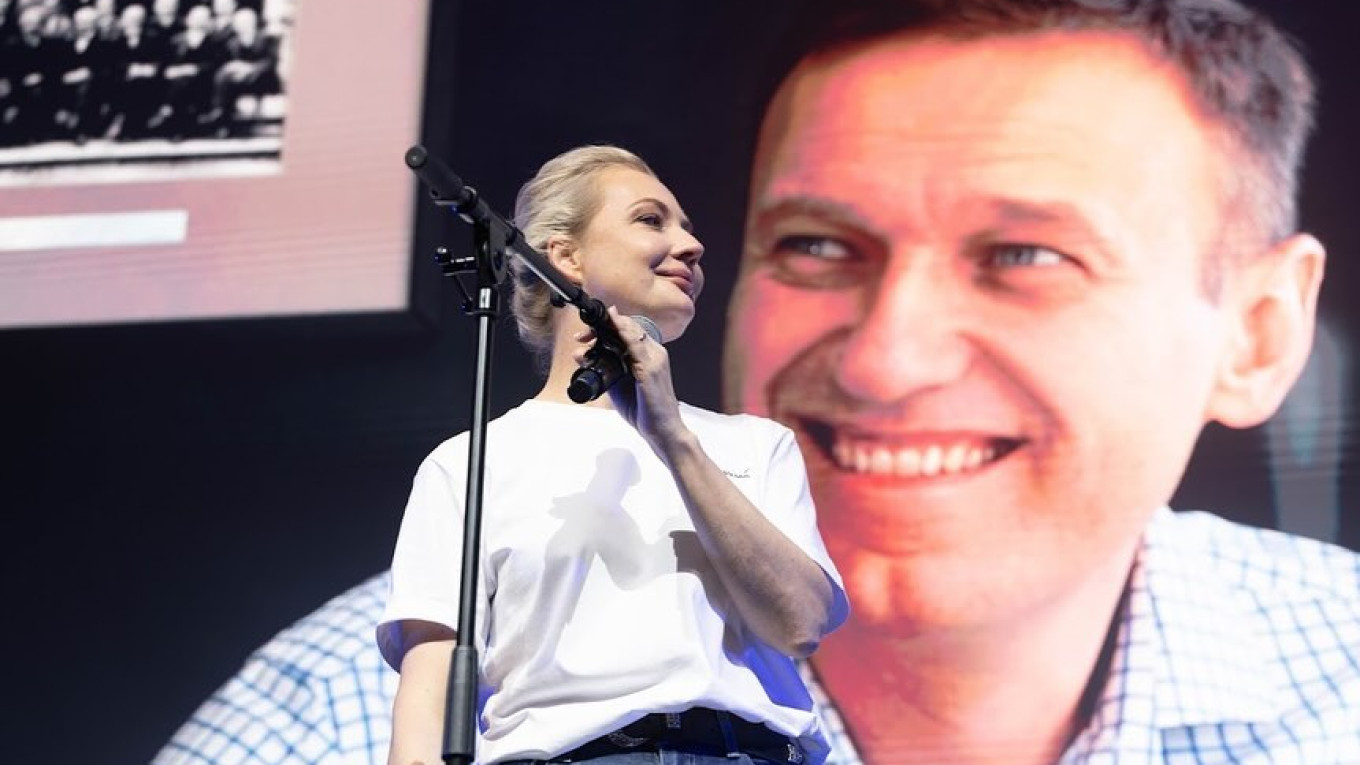The widow of Alexei Navalny, a prominent Russian opposition leader, along with Reporters Without Borders, expressed their support on Tuesday for the introduction of a new television channel designed to circumvent censorship in Russia and uphold Navalny’s legacy.
The channel, named Future of Russia, will be distributed through a free satellite platform operated by the press freedom organization Reporters Without Borders, commonly referred to by its French acronym, RSF.
Navalny’s associates are optimistic that satellite broadcasts will enhance their visibility and reach by sharing content created for their exile-based YouTube channels.
Yulia Navalnaya remarked to journalists in Paris, “I anticipate a long-term partnership.” She emphasized that while they are making every effort to connect with Russian audiences on YouTube, the Kremlin frequently attempts to block access to this Western platform.
“In Russia, we face almost complete censorship, and spreading information is particularly challenging under a dictatorship,” she added.
Following Vladimir Putin’s invasion of Ukraine in February 2022, the Russian government has prohibited public dissent and shut down independent media alongside Western social media platforms.
Thibaut Bruttin, the head of RSF, stated, “It is crucial for us to reach the Russian populace as much as possible.”
The channel is set to officially launch on June 4, coinciding with what would have been Navalny’s 49th birthday.
Navalny, known as Putin’s principal adversary, tragically passed away in an Arctic penal colony on February 16, 2024. His family and supporters contend that his death was orchestrated by orders from Putin.
Jim Phillipoff, the project director for Svoboda Satellite at RSF, highlighted the significance of the channel due to its role in delivering content from Navalny’s team to Russian-speaking viewers.
He described Navalny’s team as “trailblazers” in the battle against years of Kremlin propaganda, which blends “the allure of Western television” with Soviet-era messaging.
“Satellite is virtually the only means of effectively penetrating the traditional television landscape in Russia,” Phillipoff noted, adding that around 45% of Russians rely on satellite signals for their television viewing.
With many of the Kremlin’s leading critics either imprisoned or in exile, Navalny’s legacy is gradually diminishing in Russia.

